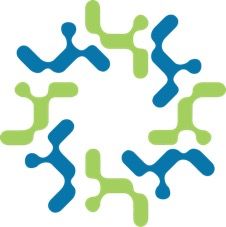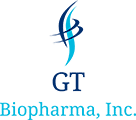预约演示
更新于:2025-12-09

Xcell Biosciences, Inc.
更新于:2025-12-09
概览
标签
肿瘤
三特异性NK细胞结合器
疾病领域得分
一眼洞穿机构专注的疾病领域
暂无数据
技术平台
公司药物应用最多的技术
暂无数据
靶点
公司最常开发的靶点
暂无数据
| 排名前五的药物类型 | 数量 |
|---|---|
| 三特异性NK细胞结合器 | 1 |
| 排名前五的靶点 | 数量 |
|---|---|
| CD16a x CD276 x IL-15 | 1 |
关联
1
项与 Xcell Biosciences, Inc. 相关的药物作用机制 CD16a激动剂 [+2] |
非在研适应症- |
最高研发阶段临床前 |
首次获批国家/地区- |
首次获批日期- |
100 项与 Xcell Biosciences, Inc. 相关的临床结果
登录后查看更多信息
0 项与 Xcell Biosciences, Inc. 相关的专利(医药)
登录后查看更多信息
1
项与 Xcell Biosciences, Inc. 相关的文献(医药)2025-08-01·CYTOTHERAPY
Artificial intelligence, machine learning, and digitalization systems in the cell and gene therapy sector: a guidance document from the ISCT industry committees
Review
作者: Hart, Sean J ; Eaker, Shannon S ; Srinivasan, Anand ; Trinkle, Keara ; Ting, Anthony ; Di Cerbo, Vincenzo ; Herbst, Laura ; Jiang, Shanya ; Madbouly, Abeer ; Redmond, Lydia ; Sethi, Dalip ; Song, Hannah W ; Ladi, Rukmini ; Stickland, Simone
As artificial intelligence (AI), machine learning (ML) and other digital tools gain prominence across industries, their application in cell and gene therapy (CGT) has become a topic of increasing interest. Discussions at recent meetings of the International Society of Cell and Gene Therapy (ISCT), including the 2024 ISCT Commercialization Signature Series (CSS), highlight the potential of these tools to help optimize CGTs. Through real-world case studies, including applications in smart bioprocessing and advanced analytics, we examine how these technologies can enhance manufacturing efficiency and increase market access. We also provide guidance definitions for the evolving automation and digitalization activities in CGT, emphasizing the importance of standardized language to facilitate progress in the field. The development of tools and methodologies for AI validation and standardization, alongside a faster evolution of the regulatory framework, remain some of the outstanding hurdles to a faster adoption. Ultimately, we caution these advancements with potential risks of data misinterpretation arising from limitations such as poor quality and size of datasets, and the use of inappropriate statistical models. Using these case studies alongside data gathered from a widely distributed public survey, we aim to clarify terminology and promote best practices as automation and digitalization shape the future of cell and gene therapies.
18
项与 Xcell Biosciences, Inc. 相关的新闻(医药)2025-05-14
·药时空
前言Preface类器官技术始于2009年,荷兰Hubrecht研究所的Hans Clevers团队成功的将成体干细胞培养成为小肠的隐窝和绒毛结构。本文将从以下八个方面(概念、发展历史、培养、应用、产业链、市场格局、挑战、未来发展)对类器官进行介绍。类器官 VS 组织样本 VS 动物模型目 录一、类器官的概念二、类器官的发展历史 三、类器官的培养 四、类器官的应用五、类器官的产业链六、类器官的市场格局七、类器官的挑战八、类器官的未来发展-01-类器官的概念类器官(Organoids)指利用成体干细胞或多能干细胞进行体外三维(3D)培养而形成的具有一定空间结构的组织类似物。尽管类器官并不是真正意义上的人体器官,但能在结构和功能上模拟真实器官,能够最大程度地模拟体内组织结构及功能并能够长期稳定传代培养。目前类器官分为两类:组织来源类器官和多能干细胞来源类器官。相比传统的二维培养模型,类器官代表着一种能够概括整个生物体生理过程的创新技术,具有更接近生理细胞组成和行为、更稳定的基因组、更适合于生物转染和高通量筛选等优势。而与动物模型相比,类器官模型的操作更简单,还能用于研究疾病发生和发展等机理。因而在器官发育、精准医疗、再生医学、药物筛选、基因编辑、疾病建模等领域都有广泛的应用前景。2013年,类器官被《科学》杂志评为年度十大技术。在Pubmed上搜索 “类器官” 这一词条,类器官相关文章从2010年的42篇,在短短十年间,跃升到2020年的2097篇。类器官以极迅猛的态势成为研究热点。-02-类器官的发展历史类器官的起源可以追溯到1907年,当时44岁的美国贝克罗莱那大学教授威尔逊 (H. V. Wilson)发现通过机械分离的海绵 (sponge) 细胞可以重新聚集并自组织成为新的具有正常功能的海绵有机体,他的研究结果于1910年发表。威尔逊的研究证明了成年的有机体在无需外界帮助、无需从特定的解剖学阶段开始,也具有完整的信息并可以成功发育成新的有机体。对类器官技术而言,另外一个十分关键的契机是干细胞技术的发展。干细胞想必大家并不陌生,很多人对于干细胞的第一印象都是来源于媒体中对于血液疾病造血干细胞移植疗法的介绍。近年来火热的干细胞研究,主要开始于上世纪末。1987年,A. J. Friedenstein发现间充质干细胞 (Mesenchymal Stem Cell, MSCs)。1998年,美国生物学家James Thomson首次分离得到人胚胎干细胞。2007年,山中伸弥教授成功制造出人诱导多能干细胞(induced Pluripotent Stem Cells, iPSC)。如今,绝大多数类型的非肿瘤来源的人源类器官均可由MSCs或iPSC发育而来,干细胞研究的飞速进展为类器官研究带来新的活力。类器官发展主要事件当代类器官的发展成果,主要集中在近十余年。2007年,Hans Clevers的实验室通过lineage tracing验发现小肠和结肠的干细胞为Lgr5+细胞。2009年,Hans Clevers实验室使用单个鼠LGR5+肠干细胞在体外自组织成为具有肠隐窝-绒毛结构的肠类器官。2011年,由人多能干细胞和原代成体干细胞发育而来的肠类器官被成功制作。同年,由鼠胚胎干细胞培育而来的视网膜类器官被首次成功培育。2012年,由人多能干细胞发育而来的视网膜类器官成功培育。2013年,由人多能干细胞发育而来的脑类器官被成功培育。肝、肾、胰类器官被成功培育。2014年,前列腺、肺类器官被成功培育。2015年,乳腺、输卵管、海马体类器官被成功培育。2020年,蛇毒液腺类器官被成功培育。类器官的研究热点是病人来源的类器官 (Patient-Derived Organoids, PDOs),因为通常用于肿瘤患者的疾病建模、研究与药物筛选,常常被称为肿瘤类器官。肿瘤类器官的发展开始于2013年,自此之后呈逐年上升趋势。肿瘤类器官是指将患者活检、穿刺或手术切除组织在基质胶中培养数周得到的类器官。肿瘤类器官在高度保持源肿瘤的异质性和患者之间的异质性的同时,类器官个体间形态、尺度保持基本均一,为肿瘤发病机理研究、药物筛选、个性化精准医疗、再生医学等领域提供了快速、优良的技术平台。目前3D类器官培养技术已经成功培养出大量具有部分关键生理结构和功能的类组织器官,比如:肾、肝、肺、肠、脑、前列腺、胰腺和视网膜等。-03-类器官的培养类器官的培养可以利用体细胞、成体干细胞(包括祖细胞)或多能干细胞。2009年,肠道器官模拟技术率先取得突破,研究人员发现,成人肠道干细胞可以在体外增殖和自发组织化。其特征是能够表达LGR5,这是一种编码Wnt激动剂R-spondin受体的基因,同时需要特定的分子围绕在旁(如Wnt、KGF和noggin)。以此为理论基础,研究人员开发了一种三维培养体系,能够在体外重建肠道干细胞的适宜环境,并从肠道上皮细胞或单个LGR5+干细胞分化出具有自我更新能力、保持肠道腺窝绒毛状结构的类器官。该模型可以持续扩增达3个月,稳定的基因组保证了纯化和生产放大等优势,此后这种方法被用于从其它主要器官上皮组织培养各种类器官。成人干细胞衍生的类器官培养,通常是通过将分离的成人干细胞或所需器官培养的单细胞悬浮液,嵌入到细胞外基质(ECM)水凝胶中来建立的。例如肠道器官,从小肠或结肠分离出的隐窝细胞足以培养出类器官,也可以从分离的成人肠干细胞中培养出类器官。上皮类器官培养基是以附加与器官相关的生长因子的培养基为基础的。因此,从其他组织(如呼吸道、肝脏、胰腺、皮肤、膀胱、大脑、心脏)提取的细胞器要求在培养中补充相关生长因子。例如大脑类器官培养过程如下图:诱导多能干细胞(iPSC)衍生细胞在神经诱导介质中生长,产生神经外胚层,嵌入Matrigel中,并在旋转生物反应器或轨道摇床中生长,以更好地扩散,获得三维脑器官。在暴露于维甲酸的情况下,大脑器官通过自我组装模式,形成自缔和组织,形成包括放射状胶质细胞在内的不同种群的神经祖细胞,这些神经祖细胞扩展形成大脑结构。除了成体干细胞,多能干细胞(包括诱导干细胞和胚胎干细胞)也可以利用其自我更新及分化能力来制备类器官。由于从多能干细胞中提取的类器官是通过同质群体定向分化而形成的,因此,必须在一个唤醒胚胎发生的动态过程中重新创造组织特异性细胞类型及其微环境。因此,多能干细胞类器官培养必须在分化过程中提供合适的生态位信号。由于这一过程较复杂,多能干细胞类器官往往含有不同于模型器官的细胞类型,使靶组织的信号环境和自组织复杂化。1、科学研究中的类器官培养1.1 上皮类器官研究上皮细胞-免疫细胞相互作用上皮细胞出现在机体所有和外界接触的边界,比如皮肤,呼吸道,肺,消化道,是机体对抗病原体侵染的第一层屏障,也是第一个对病原性感染作出反应的细胞。为了维持体内平衡,并提供对感染的快速反应,上皮细胞与免疫细胞密切配合。所以在上皮区域,也是全身免疫细胞浓度最高的区域。建立上皮细胞和免疫细胞相互作用的模型,是研究抗感染免疫和损伤后免疫的重要手段。上皮细胞类器官的建立,可以非常精准的模拟机体上皮环境,也被发展起来研究上皮和免疫细胞相互作用。有三种共培养的模式1.用存在于细胞外基质中的重组细胞因子处理类器官,评价免疫细胞衍生细胞因子对于上皮细胞的影响。如IL-4和IL-13促进丛生细胞分化,而IL-22支持干细胞增殖和存活。2.将器官消化到单个细胞,然后在免疫细胞存在的情况下,再生长。用于评估免疫细胞和免疫细胞衍生的细胞因子(可溶性或膜结合)对器官生长和分化的影响,以及上皮细胞对免疫细胞表型的影响。3.在ECM或生长培养基(悬浮培养)中,向完整的类器官中添加(活化的)免疫细胞,如T细胞或固有淋巴样细胞(ILCs),以评估免疫细胞与上皮细胞之间的相互作用。这些检测的读数通常包含消化形成的器官和随后的转录。单细胞RNA测序或定量PCR(QPCR),成像和/或流式细胞术评估上皮细胞和/或免疫细胞表型。在这些共培养中使用的免疫细胞要么直接从小鼠组织(例如,脾细胞、肠上皮内淋巴细胞、固有层T细胞、固有层ILCs或肺ILC2s)中分类,要么直接从人外周血中提取,要么先在体外分化。1.2 胸腺类器官研究T细胞发育胸腺是T细胞成熟和从祖细胞向成熟的幼稚淋巴细胞分化的中心部位。来源于骨髓的T细胞祖细胞在胸腺皮质进行阳性选择,随后在胸腺髓质中进行阴性选择。胸腺的这些区域由两种不同的上皮细胞组成:皮质胸腺上皮细胞(CTECs)和髓质胸腺上皮细胞(MTECs)。3D重建胸腺被证明是模拟其功能的关键,几种胸腺类器官的产生方法:这些器官培养通常是从人类身上建立起来的或胎鼠或新生儿胸腺组织,但也有报道称TEC样细胞与人胚胎干细胞的体外分化,这些培养都产生胸腺样结构。在体外产生活的T细胞,并在移植到裸鼠上时发挥作用。有趣的是,虽然长时间的类似胸腺的培养是可能的(离体培养长达56天),但细胞在连续传代时失去了集落形成能力。重要的是,虽然在成年小鼠中已经发现了一种双能的TEC前体,但含cTECs和mTECs的胸腺器官尚未从单个干细胞中生成。此外,考虑到小鼠体内某些双能TEC前体的生长因子已被发现(例如BMP 4和IL-22),可以尝试这些因子是否可用于维持TEC的祖细胞来源的类器官。2、肿瘤微环境两种主要的方式被使用(以非小细胞肺癌为例)在整体方法(左)中,肿瘤活检组织是在气液界面间环境培养,所有肿瘤细胞类型的细胞悬液,包括内源性免疫细胞和其他非上皮细胞类型,促进肿瘤特异性T细胞的生长。在还原模拟方法(右)中,上皮类器官是从肿瘤活检组织中生长出来的,然后与来自同一患者外周血的自体免疫细胞共培养,以促进肿瘤反应细胞的连续扩张。虽然整体方法允许包括整个肿瘤微环境的肿瘤材料的培养,因此与体内情况非常相似,但不易长时间维持,而还原模拟方法允许肿瘤上皮的长期培养和扩展,这使得更广泛,更长期的研究成为可能。3、药物筛选3.1 促进心肌纤维细胞生长化合物筛选动物模型,主要是老鼠,被广泛用于研究心脏病,提供有价值的结果。然而,由于许多功能和生物学特性的物种差异很大,它们对人类心脏疾病和药物安全性的推断很差。人类多能干细胞(hPSC)可以为生物医学和药物研究提供无限的人类心肌细胞来源,有可能弥合这一鸿沟。然而,传统2D培养中的hPSC源性心肌细胞缺乏功能成熟,,这在某些情况下阻碍了它们准确预测人类生物学和病理生理学的能力。多细胞3D人体类器官提供了更精确的模型,是解决这一问题的潜在方法。澳大利亚昆士兰大学生物医学系的科学家在Cell Stem Cell发表文章,阐述他们基于96孔板,培养心脏心肌类器官,进而进行化合物筛选的新流程。具体流程如下图:基于类器官,将5000种化合物,筛选出不同功能化合物。3.2 特定神经类器官培养及药物筛选等应用首先神经球在不同分化培养基种培养(具体的诱导因子及生长因子见下图),产生大脑,中脑,海马,前脑等不同脑部类器官。-04-类器官的应用类器官作为一个新兴的技术,在科学研究领域潜力巨大,包括发育生物学、疾病病理学、细胞生物学、再生机制、精准医疗以及药物毒性和药效试验。类器官培养使研究人体发育提供了不受伦理限制的平台,为药物筛选提供了新的平台,也是对现有2D培养方法和动物模型系统的高信息量的互补 。此外,类器官为获取更接近自然人体发育细胞用于细胞治疗成为可能。通过类器官繁殖的干细胞群取代受损或者患病的组织,类器官提供自体和同种异体细胞疗法的可行性,未来这一技术在再生医学领域也拥有巨大的潜力。使用这项技术,采用CRISPR/Cas9能够纠正体外遗传异常并能够将健康的转基因细胞再次回输入患者体内,并在后期整合入组织内。在精准医学应用中,患者衍生的类器官也被证明为有价值的诊断工具。在进行治疗之前,采用从患者样本来源的类器官筛查患者体外药物反应,旨在为癌症和囊胞性纤维症患者的护理提供指导并预测治疗结果。随着类器官培养系统以及其实验开发技术的不断发展,类器官应用到了各大研究领域。1、通过类器官对发育和疾病进行建模研究人员可以通过类器官来模拟人类发育和疾病,因为类器官是从人类干细胞或成年细胞产生的诱导性多能干细胞生长而来的,它们的成分和结构也与原发组织相似,并且易于操作和冷冻保存。这意味着类器官可以用于研究源自干细胞的人体组织且难以通过动物模型模拟的人类疾病分析,研究人员仅需少量的起始物质即可培养类器官。因其与对应的器官拥有类似的空间组织、保持一些关键特性并能够重现部分生理功能,而被认为是检测人类生物学和疾病方面的新模型。相较于细胞系、基因工程鼠和人源化异种移植鼠(patient-derived xenografts, PDX)这些传统的研究模型,类器官模型(鼠源类器官mouse-derived organoids, MDO和人源类器官patient-derived organoids, PDO)不但能够取自正常组织和组织癌变过程中各个阶段的肿瘤组织,而且其培养体系简单易操作,时间和金钱成本较低,且具有较高效率,因而得到广大研究人员的亲赖,被Nature Methods评为2017年生命科学领域年度技术。主要研究模型对比目前,类器官多用于肿瘤癌症的研究中。观察下图中临床前肿瘤癌症模型的比较,可以发现类器官有着很强的优势:目前,癌症联盟组织如国际癌症基因组联盟(International Cancer Genome Consortium,ICGC)、癌症基因组图谱计划(The Cancer Genome Atlas, TCGA)所使用的大部分样本都取自于原发肿瘤(primary tumors)。相比之下,PDO可以取自肿瘤发展过程中的任何阶段,而且只需要一小部分肿瘤组织即可在体外进行培养和扩增。研究人员已经在肝癌、胰腺癌和结肠癌肝转移组织中,通过穿刺获得活检,成功的在体外进行类器官培养。甚至能够将前列腺癌患者的循环肿瘤细胞在体外培养成类器官。也有研究人员从尿路(urine)和支气管肺泡(bronchial lavage)的正常细胞中成功培养类器官,但是目前还不清楚这些培养方法能否适用于这些组织来源的肿瘤类器官培养。2、干细胞类器官工程干细胞生物工程技术的进步提高了控制细胞类型,组织和相互作用的能力,而类器官工程正需要通过直接修饰干细胞或控制微环境来操纵每个结构层。现在,科学家已经开发了更精确的合成环境,通过用信号蛋白修饰基质的生物惰性区域,可以更好地控制干细胞的活性。类器官工程技术对于一些体内环境成分复杂、需要精确建模的发育研究特别有用。3、类器官与精准医疗类器官技术正在成为个体化治疗的工具,运用类器官技术进行个体化治疗是指,通过体外对类器官进行药物筛选和基因型分析,制定适合这个个体的治疗药物和方法。截至到目前,不同肿瘤PDOs对传统和正在研发的药物所产生的反应是各种各样的。对目前有限的资源研究发现,大部分PDOs所展现的治疗反应和相对应的病人刚开始对治疗的反应是一致的。PDOs也可以用于针对被动或获得性耐受开发新的药物。更重要的是,PDOs对具有细胞毒性的药物敏感性较强,因而可以更好的预测病人使用后的临床反应。接下来,研究人员对大量个体PDOs的药物反应数据进行整合分析,找出共同特征,进而对一类相似病人进行生物标记物开发研究。3.1药物筛选类器官培养物可用于药物筛选,这可将肿瘤的遗传背景与药物反应相关联。来自同一患者健康组织的类器官的建立提供了通过筛选选择性杀死肿瘤细胞而又不损害健康细胞的化合物来开发毒性较小的药物的机会。自我更新的肝细胞类器官培养物可用于测试潜在新药的肝毒性(临床试验中药物失败的原因之一)。药物筛选模型对比3.1.1 类器官药物筛选的优势速度快:类器官构建成功率高以及培养速度快。常规来说,在类器官培养一周之后就可以进行药筛。从样本采集到出具药敏结果的全流程已经可以很好地控制在2周之内。通量高:从可筛查的药物通量来说,利用类器官不仅可以在孔板上进行多种药物的筛查,每个药物还可以测试不同的浓度,多个实验平行开展。临床相关性强:类器官用于癌症药筛的临床相关性和预测有效性在多篇研究中都已经得到了较为充分的证实。Vlachogiannis G团队在Science发表了肿瘤类器官体外药敏测试指导临床用药的里程碑式研究,在71位转移性胃肠道癌提取了110份组织构建了类器官,共测试了55种抗癌药物。研究结果显示,类器官药筛达到了93%的特异性,100%的灵敏度、88%的阳性预测率和100%的阴性预测率,展现了极高的临床相关性。3.1.2 类器官进行药筛的流程药物筛选流程包括类器官的构建、评估、药敏检测三大方面:类器官构建:类器官的样本来源通常为肿瘤组织或者胸腹水等恶性积液,主流的培养方法包括较为常用的正置胶滴法、适用于肿瘤和睾丸类器官培养的倒置胶滴法、适用于有气体接触的黏膜类器官(肠、呼吸道)培养的气液界面法以及需要较大扩增(脑类器官)的生物反应器法等。首先将患者来源的肿瘤样本组织通过机械剪切得到肿瘤细胞团,再将细胞团酶消化成单细胞。分离消化后,将细胞嵌入到基质胶中并在96/384孔板上进行胶滴的种接,再覆盖以培养基和细胞因子培养。类器官培养至直径几百微米的细胞小球即可用于药筛。类器官培养特有的重要试剂包括消化液、培养基(例如Wnt、R-Spondin、Noggin等细胞因子)、基质胶(Matrigel等)。类器官评估:在培养好类器官之后,对于类器官的评估和验证也至关重要。通过基因测序、免疫荧光、HE染色等方法,从形态学、组织病理学以及分子遗传学等多个维度对类器官进行鉴定。评估的目的是确定类器官和原肿瘤具有一致性,这也是进行后续药筛的前提。药物检测:类器官目前可筛选的药物种类包括化疗药、小分子靶向药、抗体药物等。药筛的核心检测检测指标通常为IC50以及细胞抑制率,根据这些指标在筛查的药物中选取对肿瘤抑制效果最佳的药物。在中国的注册临床中,类器官以化疗药的敏感性检测作为主流应用,类器官用于检测靶向药和免疫治疗的敏感性在未来还有极大的发挥空间和应用潜力。3.1.3 类器官药筛的发展方向类器官药筛与二代测序作为组合产品使用,二者在临床上可以有机结合,很好地相辅相成。二代测序从基因层面上检测出患者的靶点突变情况和潜在的药物敏感靶点,为医生和患者提供初步用药选择,但是单凭二代测序结果无法保证完全的临床疗效。部分研究报道和临床案例指出,二代测序筛出的潜在靶向药并没有在实际临床上反应出有效性,这一部分的不确定性通过类器官可以很好排查。3.2 基因型分析来自不同健康器官的类器官的生长,然后对培养物进行全基因组测序,可以分析器官特异性突变谱。通过生长来自同一肿瘤不同区域的类器官,可以用于研究肿瘤内异质性。区域特异性突变谱可以通过类器官的全基因组测序来揭示。使用与上述相似的方法,可以利用类器官来研究特定化合物对健康细胞和肿瘤细胞突变谱的影响。癌症是由致病基因突变的逐渐积累引起的。因此,了解在组织稳态和肿瘤发生过程中活跃的突变过程是很重要的。(资料来源:中君亚泰、干细胞者说)-05-类器官产业链类器官行业的上游公司主要集中在为3D细胞培养提供试剂和材料原料,包括提供细胞支架材料、胞外基质、细胞生长因子、培养基和生物反应器等。其中有比较老牌的试剂厂商ThermoFisher,Sigma-Aldrich(现被Merck收购),也有一批取得较大成就的创业型公司。包括瑞士的提供无支架三维细胞培养产品的InSphero公司,加拿大最大的生物科技公司STEMCELL Technologies提供专业的细胞培养基和细胞分选产品,和提供体内微环境模拟系统的美国公司Xcell Biosciences等。主要的3D细胞培养技术根据Meticulous Research Analysis的资料显示:2016年,3D组织培养在全球细胞分析检测市场占据了约9.3%的份额。2017年市场价值8.181亿美元,在预计期内将以8.7%的年复合增长率增长,2022年达到12.426亿美元。其中,美国在全球3D细胞市场贡献了约34.8%的主要份额,位居全球首位。2016年,中国在全球3D细胞市场占5%的份额,远不及美国,但预计未来五年中国将以11.8%的年复合增长率增长,成为年复合增长率最高的国家,具备市场发展潜力。类器官行业的中下游公司营收点主要在于给各大新药测试公司提供药物体外试验方案和疾病模型,即临床试验外包服务。例如哈佛大学Wyss生物工程学院2013年成立的生物技术公司Emulate,Emulate和FDA将合作,评估和鉴定使用Emulate的“器官芯片(Organs-on-Chips)”技术作为毒理学测试的平台的可能性,并先后宣称与阿斯利康和罗氏形成战略合作;荷兰生物技术公司 Mimetas研发了一种芯片肾,并与几家制药公司达成了应用合作协议将其用于药物筛选;上市公司Organovo宣称研发出第一台生物器官的3D打印机,开发出人造肝﹑人造肾。并于2017年10月宣布与Viscient Biosciences达成合作,以进一步研究肝病。类器官行业尚未在国内形成集中化产业集群。除了传统的国外细胞培养试剂和原料代理商外,中下游的公司较为稀疏。在北京、上海和广州区域先后涌出了几家创业型公司。类器官行业在欧洲国家发展较为迅速,这和欧洲类器官科研最早起步以及积累最多必不可分。类器官的领头人Hans Clevers成立的Hubrecht Organoid Technology(HUB)是类器官最早的研发中心,HUB技术授权促进了Epistem、Cellesce、Crown Biosciences、STEMCELL Technologies在内的一批类器官公司的涌现。中国在类器官领域中,近年来其实也呈现出科研数量大幅度上升的趋势,尤其在2019-2020年这两年间显现出了强劲的发展势头,发表的文献数量在全球的排名从第六位(2009-2019年)跃至第二位(2020年),仅次于美国。参考欧洲的类器官发展模式,可以预计中国基础科研积累的提升将加速类器官产业化的进程,在不远的将来我们也将看到更多类器官公司的涌现。-06-类器官的市场竞争在全球范围内类器官已经显示出其强大的发展潜力,国外已经形成一定的市场竞争格局,多家公司正在快速的发展,例如AIVITA Biomedical、System1 Biosciences、JangoBio等。但国内还未真正形成竞争市场。国内外部分类器官公司-07-类器官的挑战类器官培养技术目前正处于技术爆发和科研成果井喷的阶段,行业发展具有很大的前景,但也面临较大的挑战。比如如何利用好人体胚胎的干细胞建立持久稳定的体外模型;培养条件和环境刺激如何更真实的模拟还原人体微环境;科研属性的产品如何实现量产,如何转化为临床产品等。类器官作为新型的药筛模型,成本虽然较PDX更低,但还是远高于细胞系。类器官成本占比较高的包括培养使用的基质胶,常用的基质胶为美国BD Biosciences公司的Matrigel®,在行业内处于较为垄断的地位,价格较高。Matrigel可以产生类似于哺乳动物细胞基底膜的生物活性基质材料,帮助多种类型的细胞达到附着和分化。Matrigel的来源是小鼠肉瘤细胞系,除了成本较高的问题,同时批次间存在一定的变异性。且由于是动物来源,对于有机类的药物的检测有局限性。考虑到小鼠来源的细胞外基质对于药物筛选实验结果存在一定的干扰,因此基质的工程技术开发用于合成外源差异较小的、非动物来源的基质胶用于成本下降和性能优化将是类器官产业化需要解决的关键性问题之一。基质胶以外,培养也涉及多种细胞因子组合使用,细胞生长因子通常也价格不菲。选择效果更好的细胞因子以及尝试减少使用细胞因子的数量也可以带来成本下降的空间。目前大多类器官本身并不具备血管化的结构。因此,随着类器官体积的增长,类器官受限于氧气的缺失以及代谢废物的增加,可能导致的组织坏死。已有研究构建血管内皮细胞微环境的肿瘤类器官,将类器官肿瘤细胞和血管内皮细胞在Matrigel上共同培养,生成血管结构以期解决类器官血管化缺失的问题。血管化以外的难点还包括模拟肿瘤和免疫环境的相互作用关系。2019年Nature Protocol 期刊发表了肿瘤类器官和免疫细胞共同培养的相关protocol,可以体现和模拟出肿瘤微环境的部分特征。以上皮类器官和免疫细胞共培养模型为例,可通过在培养基中添加活化的免疫细胞、在组织消化成单细胞后和免疫细胞共同生长、添加ECM中的重组细胞因子等方法重塑类器官和免疫细胞的相互作用。相比于单个类器官,类器官系统的构建能够对药物疗效和潜在毒性做出更完整全面的评估。目前类器官仅能检测出药物对于肿瘤的抑制效果,对于其他器官组织是否存在其他副作用和安全性风险并不能做出预判。为了解决这一问题,2017年Skardal et al.构建了有心脏、肺部、肝脏组成的集成于闭合循环关注体中的类器官系统,以达到全面揭示药物对不同器官的毒性和药效的目的.重复性和一致性 也是类器官发展的重大瓶颈,这很大程度上由于过程控制的欠缺与行业标准的空白。类器官培养过程中人为因素的过多参与、自动化程度低导致因为系统偶然性造成的误差较大。同时,类器官检测手段十分匮乏,活体观察主要集中在形态学观察,断点观察集中在基于荧光的各类指标的检测,能够活体实时对类器官各项指标进行检测的光学、电化学等手段仍较为欠缺。当前,类器官很多研究者致力于制造更新的类器官,做出之前未能做出的类器官,我们可以制作海马体、垂体、腺体、脾、肾的类器官,却难以确定一个符合要求的类器官需要满足那些个体的诸如尺寸、形状、基因表达量等,群体的诸如类器官之间的方差等统计学指标。这将限制类器官的高效研究与向临床研究的转化。对于类器官培养过程中的工程控制也是亟待解决的问题。当前类器官培养大多使用Matrigel水凝胶作为培养基质,Matrigel是康宁生命科学公司生产的Engelbreth-Holm-Swarm (EHS)小鼠肉瘤细胞分泌的胶状蛋白混合物。Matrigel因其含有外源成分,难以应用在人的很多治疗场景。另一方面,虽然类器官与微流控技术已有一些结合研究的例子,但使用微流控芯片对类器官生存的流体环境进行模拟仍不成熟,如何使用微流控等技术对类器官培养时流体微环境进行控制是亟待解决的问题。同时,现有类器官的直径约在100-500μm之间,虽然具有一定程度的尺度效应,但还是难以模拟真实组织、器官的场景。倘若要制造尺度更大的类器官,类器官的血管化也是十分重要的问题。-08-类器官的未来发展1、国家政策推动2021年1月28日,科技部下发的《关于对“十四五”国家重点研发计划6个重点专项2021年度项目申报指南征求意见的通知》中,把“基于类器官的恶性肿瘤疾病模型”列为“十四五”国家重点研发计划中首批启动重点专项任务。另外,“十四五”国家重点研发计划中重点指出,类器官作为一项重大的技术突破被用于疾病模型的建立中,且可用于研究病理状态下干细胞变异、异质性及其发生机理,挖掘疾病诊疗的新靶标,探索诊疗新策略。类器官技术在未来将有非常大的应用价值和发展前景。2、类器官技术发展传统制备法,是一种依赖于生长因子的3D培养技术,有其局限性(比如对类器官及局部环境的控制不够精确)。此外,传统制备法不能很好地复制器官发展过程中复杂又动态的微环境,而这种微环境恰恰是器官形成的有利因素,这就使得获取更完整的类似体内器官发展的类器官过程困难重重。目前最前沿的是,由器官芯片技术与类器官组合成的“类器官芯片”技术。类器官不是唯一,多模型的整合才是王道,基于原位组织和动物模型的研究仍将是生物医学研究的金标准。类器官已经成为一种吸引人、易于从多能干细胞系复制的人体外组织模型,但是,以大脑类器官为例,其与原位细胞类型之间仍存在着很多差异,从而可能会混淆人们对内源性脑功能的认识,并可能提出关于神经病理学的误导性假设,最终可能误导治疗方法。这就需要对原位组织中的每一种细胞特性进行深入的了解和表征,包括通过结合转录组、表观基因组和蛋白质丰度等方法来表征的细胞类型;包括空间组织、形态和物理连接性参数的细胞结构组织;以及包括代谢状态和电生理在内的细胞和组织功能指标。在今天,类器官尚且无法独当一面,而未来,类器官也不需独当一面,多模型的整合才是研究的最佳方案。展望未来,类器官研究前景巨大。类器官高度仿真的疾病模型有望继续在精准医疗、再生医学等领域取得新的进展。同时,“ 类器官+”,有望给类器官研究带来新的增长点。与活体实时成像技术结合的类器官技术有望让人们第一次实时观察到人早期发育过程;与生物3D打印相结合,有望实现基于类器官的功能性治疗;与“人类细胞图谱 (Human Cell Atlas, HCA)”技术结合,类器官细胞图谱将推进包括罕见遗传病、复杂多因素疾病、精准肿瘤治疗等以疾病为中心的研究。识别微信二维码,可添加药时空小编请注明:姓名+研究方向!
细胞疗法
2025-03-25
MELBOURNE, Australia--(BUSINESS WIRE)--Xcell Biosciences Australia Pty Ltd (Xcellbio), an Australian affiliate of the San Francisco-based instrumentation company focused on cell and gene therapy applications, has announced that it has entered into an agreement with the Royal Perth Hospital to use its AVATAR™ Foundry platform in a clinical trial focused on rapid manufacturing of more potent cancer-killing cell therapies.
Planet Innovation, an Australian headquartered medtech innovation company, is Xcellbio’s contract development and manufacturing partner. The company has worked with Xcellbio during the past 2 years to develop the AVATAR Foundry instrument from its innovation headquarters in Melbourne. Planet Innovation will support Xcellbio with additional on-the-ground technical support for the platform during the trial.
Cell therapies have shown remarkable potential for treating cancer. Since the first bone marrow transplant in the 1950s, the concept of taking human immune cells and using their power to cure cancer has been a goal of modern medicine. The first solid tumor-targeting immune cell therapies generated from tumor-infiltrating lymphocytes (TILs) were approved for commercial use in 2024. However, the workflows associated with TIL therapies are largely manual and time intensive. TIL therapies also face challenges in retaining their cancer-killing potency within a solid tumor environment. The AVATAR Foundry was built to address these issues in the fight against cancer.
Solid tumors make up about 90% of all cancers; however, traditional cell therapies are not effective in targeting them due to the harsh nature of the tumor microenvironment (TME). The AVATAR Foundry provides a type of bootcamp for immune cells, enabling metabolic priming during the manufacturing process to achieve not only higher cancer-killing efficiency in TME conditions, but also longer persistence inside the tumor.
“Our long-term partnership with Planet Innovation and this new agreement with the fantastic team at Royal Perth Hospital provide an opportunity to expand the availability of these life-saving therapies to patients,” said Brian Feth, co-founder and CEO at Xcellbio. “We are excited by the prospect of improving cell therapy manufacturing and making these important treatments a more feasible option for patients in Australia and, ultimately, around the world.”
“Xcellbio is challenging the status quo and exploring new frontiers for treating solid-tumor cancers that affect millions of patients globally. Planet Innovation is proud to stand alongside them and help bring their vision to life through our talent and technical facilities,” said Stuart Elliott, co-founder and CEO at Planet Innovation.
Process development and clinical manufacturing at Royal Perth Hospital are due to commence in mid-2025 and run through the next few years, with instruments manufactured and shipped directly from Planet Innovation’s facilities.
About Xcell Biosciences
Xcellbio is driven by its mission to enhance the performance and safety of cell and gene-based therapies through the design and development of revolutionary technology platforms. The company’s commercial instruments and software allow researchers to discover novel insights into immune and tumor biology and enable the translation of these insights at patient scale through the development of its pioneering cGMP cell therapy manufacturing platform. Based in Melbourne and San Francisco, Xcellbio can also be found online at www.xcellbio.com.
细胞疗法基因疗法临床研究
2025-03-25
MELBOURNE, Australia & PERTH, Australia--(BUSINESS WIRE)--Xcell Biosciences Australia PTY LTD (Xcellbio), an affiliate of Xcell Biosciences, Inc., a platform company focused on cell and gene therapy applications, and Royal Perth Hospital announced a collaboration aimed at developing an automated, clinical-scale manufacturing workflow for therapies based on tumor-infiltrating lymphocytes (TILs) using the AVATAR™ Foundry system. Ultimately, the goal is to empower Royal Perth Hospital physicians and clinical researchers to rapidly manufacture potent TIL therapies for use in clinical trials.
TIL therapies are a promising type of cellular immunotherapy used to treat a broad range of solid malignant tumors, with the first FDA approval of a TIL-based therapy taking place in 2024. These therapies have proven to achieve durable complete responses in patients but require tens of billions of therapeutic cells to achieve sufficient clinical potency. Current manufacturing processes for TIL therapies are cumbersome and slow, requiring many weeks of manual and labor-intensive efforts to achieve an effective dose.
To address these challenges, Xcellbio has developed the AVATAR platform to expedite the development and manufacture of potent cell therapies. The platform uses a proprietary incubation technology to enhance the metabolic fitness of TILs, resulting in a potent and persistent therapeutic product that can overcome the immunosuppressive tumor microenvironment. The AVATAR Foundry system was designed to produce cell therapies under current Good Manufacturing Practice (cGMP) protocols in a fully automated capacity.
“At Royal Perth Hospital, we are dedicated to exploring cutting-edge approaches for cell therapies to enable the best care for our patients,” said Dr. Zlatibor Velickovic, Director of the Ray and Bill Dobney Cell and Tissue Therapies WA facility at Royal Perth Hospital. “We are excited to team up with scientists at Xcellbio to develop a much-needed automated workflow for TIL manufacturing, and to implement the AVATAR Foundry system as the newest technology innovation in our center.”
Through this agreement, Xcellbio scientists will work with the Royal Perth Hospital team to develop an automated TIL manufacturing process based on AVATAR platform that achieves key goals for cell quality, quantity, and potency. The resulting workflow will be established in the hospital’s cell therapy facility to support clinical trials using TILs.
“The emerging therapeutic class of tumor-infiltrating lymphocytes is incredibly exciting, in particular for solid tumors. Current manufacturing processes require long expansion times and high cell doses to be effective in patients. The AVATAR platform will reduce manufacturing time and increase therapeutic potency,” said James Lim, co-founder and CSO at Xcellbio.
“TILs provide a great use case for our technologies and this collaboration with the fantastic team at Royal Perth Hospital is an opportunity to expand the availability of these life-saving therapies to patients,” said Brian Feth, co-founder and CEO at Xcellbio. “We are pleased to join forces with this group to improve TIL manufacturing and to make these important therapies a more feasible option for patients in Australia and, ultimately, around the world.”
About Xcell Biosciences
Xcellbio is driven by its mission to enhance the performance and safety of cell and gene-based therapies through the design and development of revolutionary technology platforms. The company’s commercial instruments and software allow researchers to discover novel insights into immune and tumor biology and enable the translation of these insights at patient scale through the development of its pioneering cGMP cell therapy manufacturing platform. Based in Melbourne and San Francisco, Xcellbio can also be found online at www.xcellbio.com.
细胞疗法免疫疗法基因疗法
100 项与 Xcell Biosciences, Inc. 相关的药物交易
登录后查看更多信息
100 项与 Xcell Biosciences, Inc. 相关的转化医学
登录后查看更多信息
组织架构
使用我们的机构树数据加速您的研究。
登录
或

管线布局
2026年02月28日管线快照
管线布局中药物为当前组织机构及其子机构作为药物机构进行统计,早期临床1期并入临床1期,临床1/2期并入临床2期,临床2/3期并入临床3期
临床前
1
登录后查看更多信息
当前项目
| 药物(靶点) | 适应症 | 全球最高研发状态 |
|---|---|---|
GTB-5550 ( CD16a x CD276 x IL-15 ) | 头颈部肿瘤 更多 | 临床前 |
登录后查看更多信息
药物交易
使用我们的药物交易数据加速您的研究。
登录
或

转化医学
使用我们的转化医学数据加速您的研究。
登录
或

营收
使用 Synapse 探索超过 36 万个组织的财务状况。
登录
或

科研基金(NIH)
访问超过 200 万项资助和基金信息,以提升您的研究之旅。
登录
或

投资
深入了解从初创企业到成熟企业的最新公司投资动态。
登录
或

融资
发掘融资趋势以验证和推进您的投资机会。
登录
或

生物医药百科问答
全新生物医药AI Agent 覆盖科研全链路,让突破性发现快人一步
立即开始免费试用!
智慧芽新药情报库是智慧芽专为生命科学人士构建的基于AI的创新药情报平台,助您全方位提升您的研发与决策效率。
立即开始数据试用!
智慧芽新药库数据也通过智慧芽数据服务平台,以API或者数据包形式对外开放,助您更加充分利用智慧芽新药情报信息。
生物序列数据库
生物药研发创新
免费使用
化学结构数据库
小分子化药研发创新
免费使用
